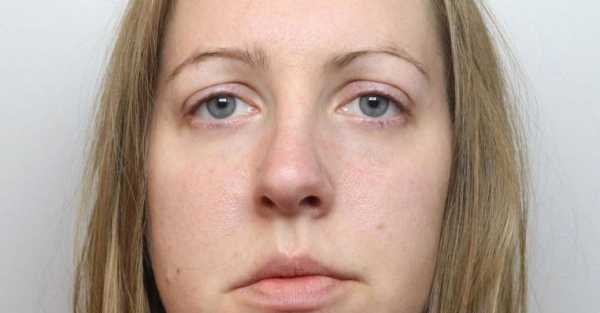
Jurors in the retrial of Lucy Letby have been reminded by a judge they “must not approach the case with any preconceived views”.
On Monday, Mr Justice Goss gave his directions of law to the jury of six women and six men at Manchester Crown Court over the allegation she attempted to murder a baby girl, Child K, while she worked a night shift at the Countess of Chester Hospital’s neo-natal unit in February 2016.
Letby, 34, was convicted last August by another jury of the murders of seven babies and the attempted murders of six others at the hospital between June 2015 and June 2016, but a verdict on the allegation concerning Child K could not be reached and a retrial was ordered on that single count.
The prosecution say she deliberately dislodged Child K’s breathing tube and was “caught virtually red-handed” by consultant paediatrician Dr Ravi Jayaram, when he walked into the unit’s intensive care nursery room one at about 3.45am on February 17th.

From the witness box, Letby told the court she did not recall being in nursery one at any time during the shift.
She said she did nothing to harm Child K and had not intended to, or tried to, harm any baby in her care as she maintained her innocence.
Mr Justice Goss told the jury: “You decide the case on, and only on, all the evidence placed before you. There will be no more and you must not speculate about what other evidence there might have been.
“As I said at the very beginning of the trial, you must not approach the case with any preconceived views and you must cast out of your decision-making process any response or approach to the case based on emotion or any feelings of sympathy or antipathy you may have.
“It is instinctive for anyone to react with horror to any allegation of deliberately harming a child, the more so a vulnerable, very premature baby.

“You will naturally feel sympathy for (the parents of Child K).
“You must, however, judge the case on all the evidence in the case in a fair, calm, objective and analytical way, applying your knowledge of human behaviour, how people act and react, and using your common sense and collective good judgment in your assessment of the evidence and the conclusions to be drawn from it.”
He went on: “You do not have to resolve every conflict in the evidence and be sure about every point that has been raised or try to determine exactly what happened.
“You are not detectives and, you may think, it would be a remarkable and exceptional case in which a jury could say we know everything about what happened in any case.
“Nor do you have to be sure of any motive or motives. Motives for criminal behaviour are sometimes complex and not always clear. You only have to make decisions on those matters that will enable you to say whether the defendant is guilty or not.”
The judge said Letby’s convictions for murder and attempted murder “does not prove that she has committed this offence on this occasion”.
He added: “Her previous convictions may only be used as some support for the prosecution case if, having assessed the evidence, you are satisfied that it is right so to do.”
Child K was transferred to a specialist hospital later on February 17 because of her extreme prematurity. She died there three days later, although the prosecution does not allege Letby caused her death.
Letby, of Hereford, denies attempted murder.
A court order prohibits reporting of the identities of the surviving and dead children involved in the case.
Sourse: breakingnews.ie






